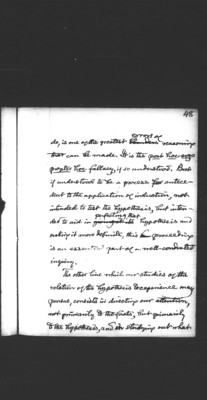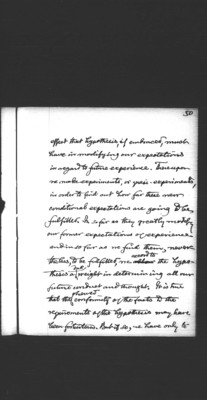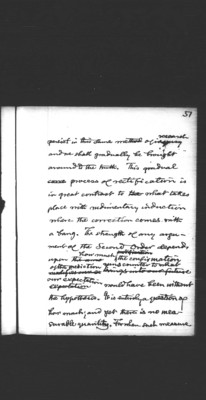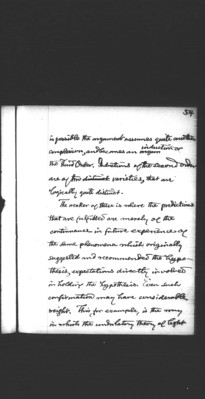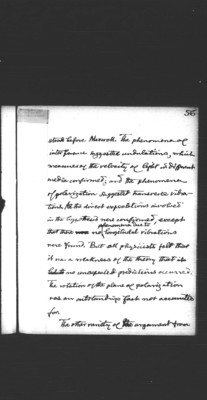Pages
26
48
do, is one of the greatest errors of reasoning that can be made. It is the post hoc ergo propter hoc fallacy, if so understood. But if understood to be a process antecedent to the application of induction, not intended to test the hypothesis, but intended to aid in perfecting that hypothesis and making it more definite, this proceeding is an essential part of a well-conducted inquiry.
The other line which our studies of the relation of the hypothesis to experience may pursue, consists in directing our attention, not primarily to the facts, but primarily to the hypothesis, and in studying out what
27
50
effect that hypothesis, if embraced, must have in modifying our expectations in regard to future experience. Thereupon we make experiments, or quasi-experiments, in order to find out how far these new conditional expectations are going to be fulfilled. In so far as they greatly modify our former expectations of experience and in so far as we find them, nevertheless, to be fulfilled, we accord to the hypothesis a due weight in determining all our future conduct and thought. It is true that the observed conformity of the facts to the requirements of the hypothesis may have been fortuitous. But if so, we have only to
28
51
persist in this same method of research and we shall gradually be brought around to the truth. This gradual process of rectification is in great contrast to what takes place with rudimentary induction where the correction comes with a bang. The strength of any argument of the Second Order depends upon how much the confirmation of the prediction runs counter to what our expectation would have been without the hypothesis. It is entirely a question of how much; and yet there is no measurable quantity. For when such measure
29
54
is possible the argument assumes quite another complexion, and becomes an induction of the Third Order. Inductions of the second order are of two varieties, that are logically quite distinct.
The weaker of these is where the predictions that are fulfilled are merely of the continuance in future experience of the same phenomena which originally suggested and recommended the hypothesis, expectations directly involved in holding the hypothesis. Even such confirmation may have considerable weight. This, for example, is the way in which the undulatory theory of light
30
56
stood before Maxwell. The phenomena of interference suggested undulations, which measures of the velocity of light in different media confirmed; and the phenomena of polarization suggested transverse vibrations. All the direct expectations involved in the hypothesis were confirmed, except that there no phenomena due to longitudinal vibrations were found. But all physicists felt that it was a weakness of the theory that no unexpected predictions occurred. The rotation of the plane of polarization was an outstanding fact not accounted for.
The other variety of the argument from
